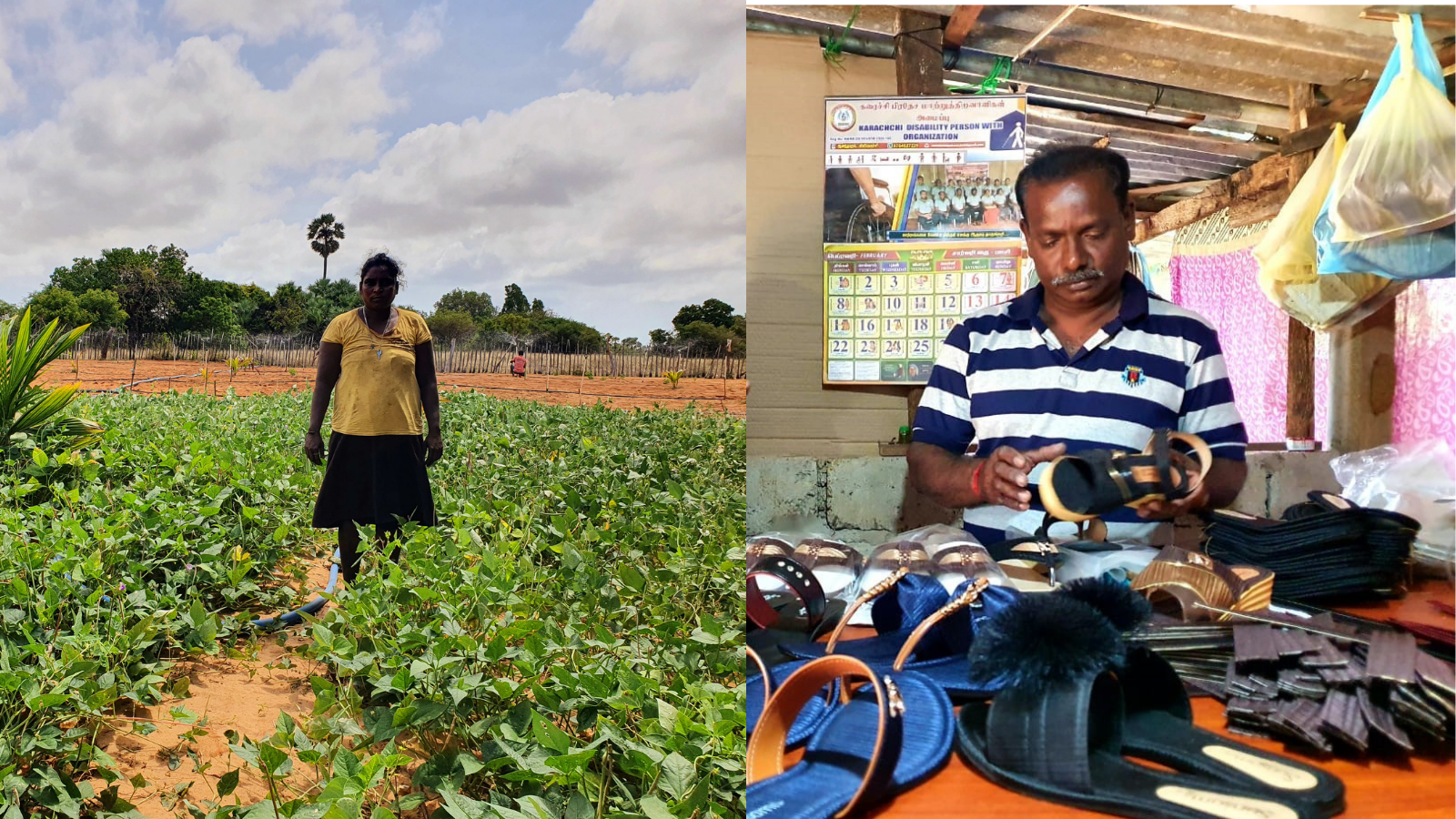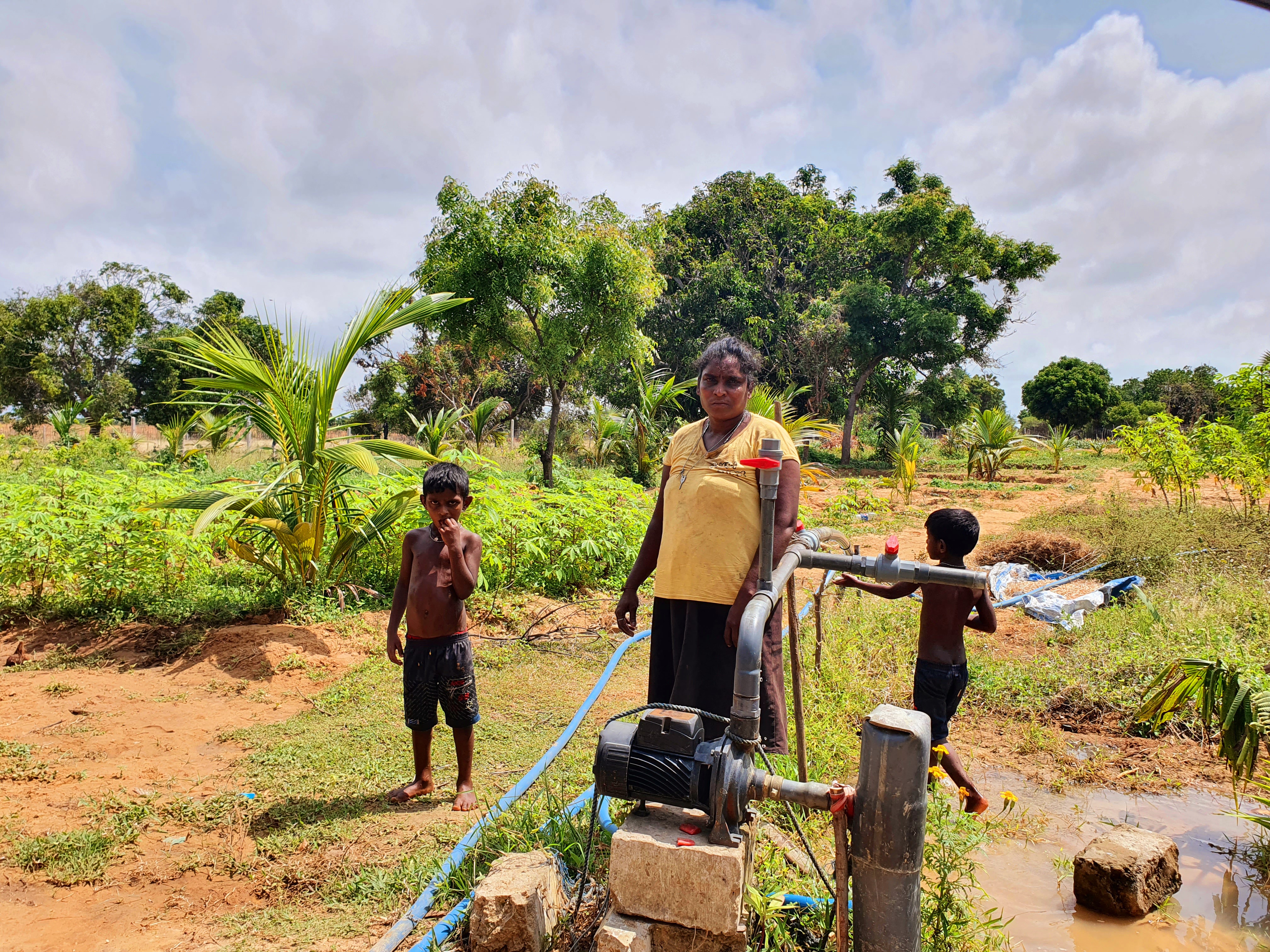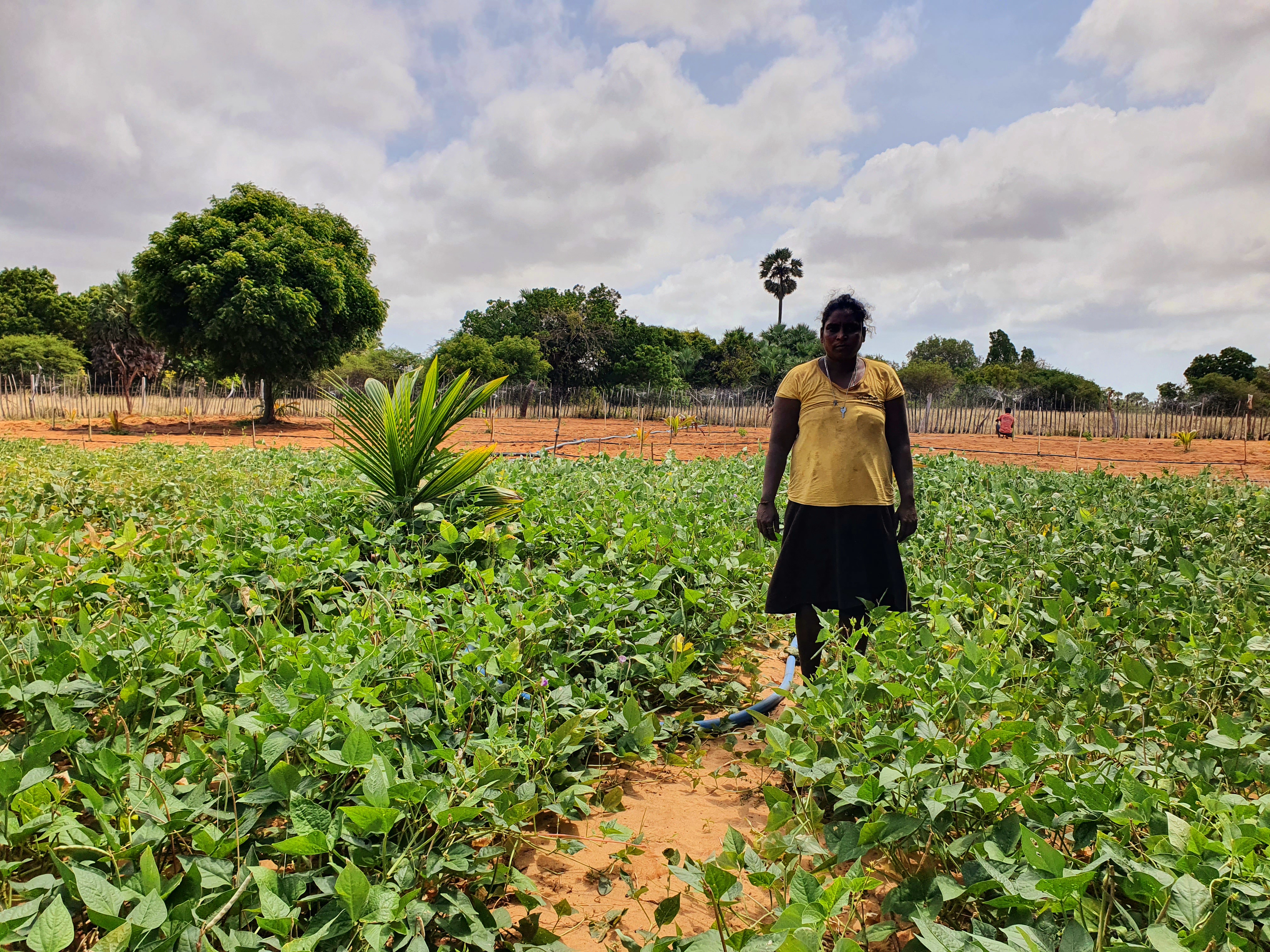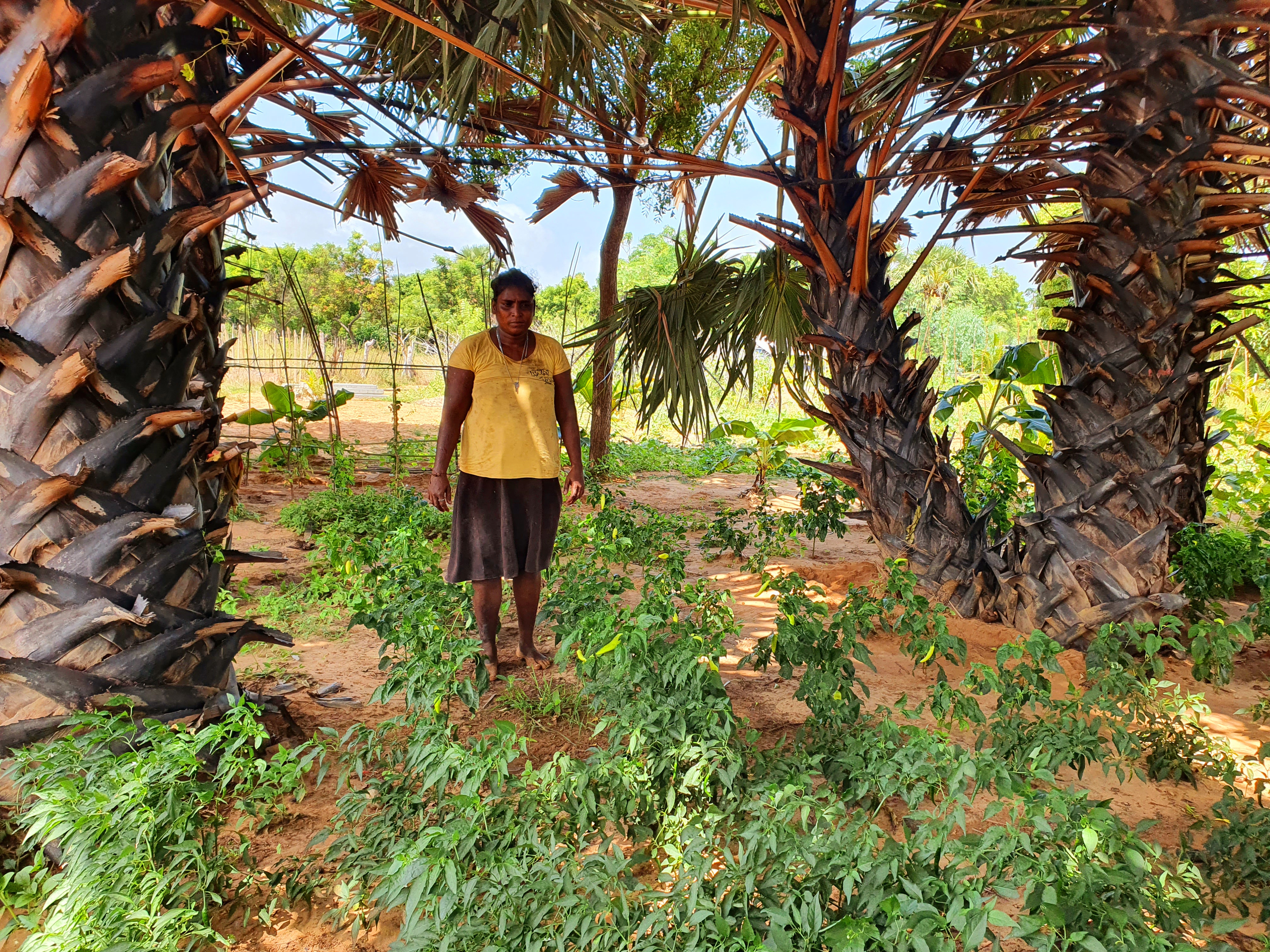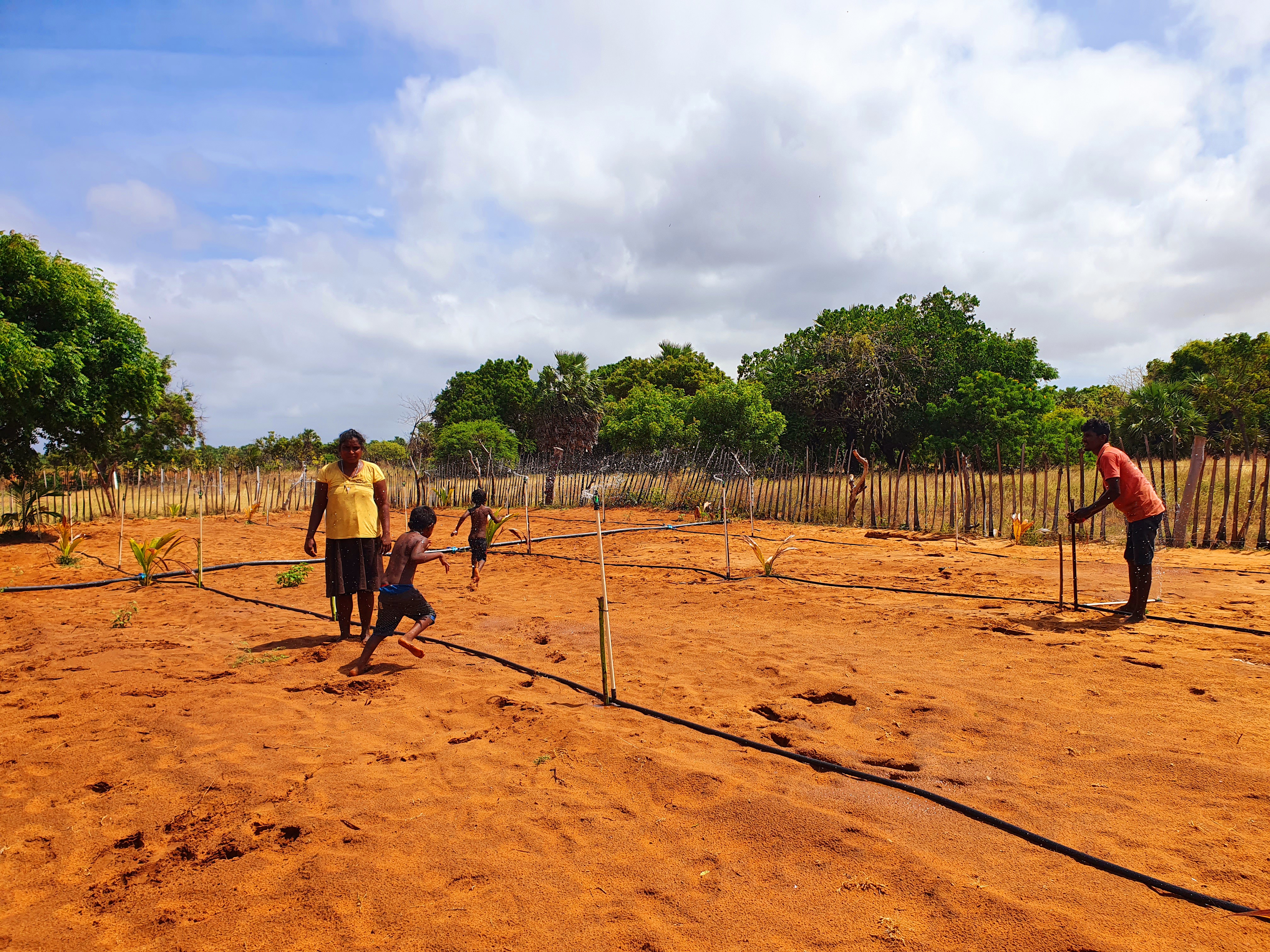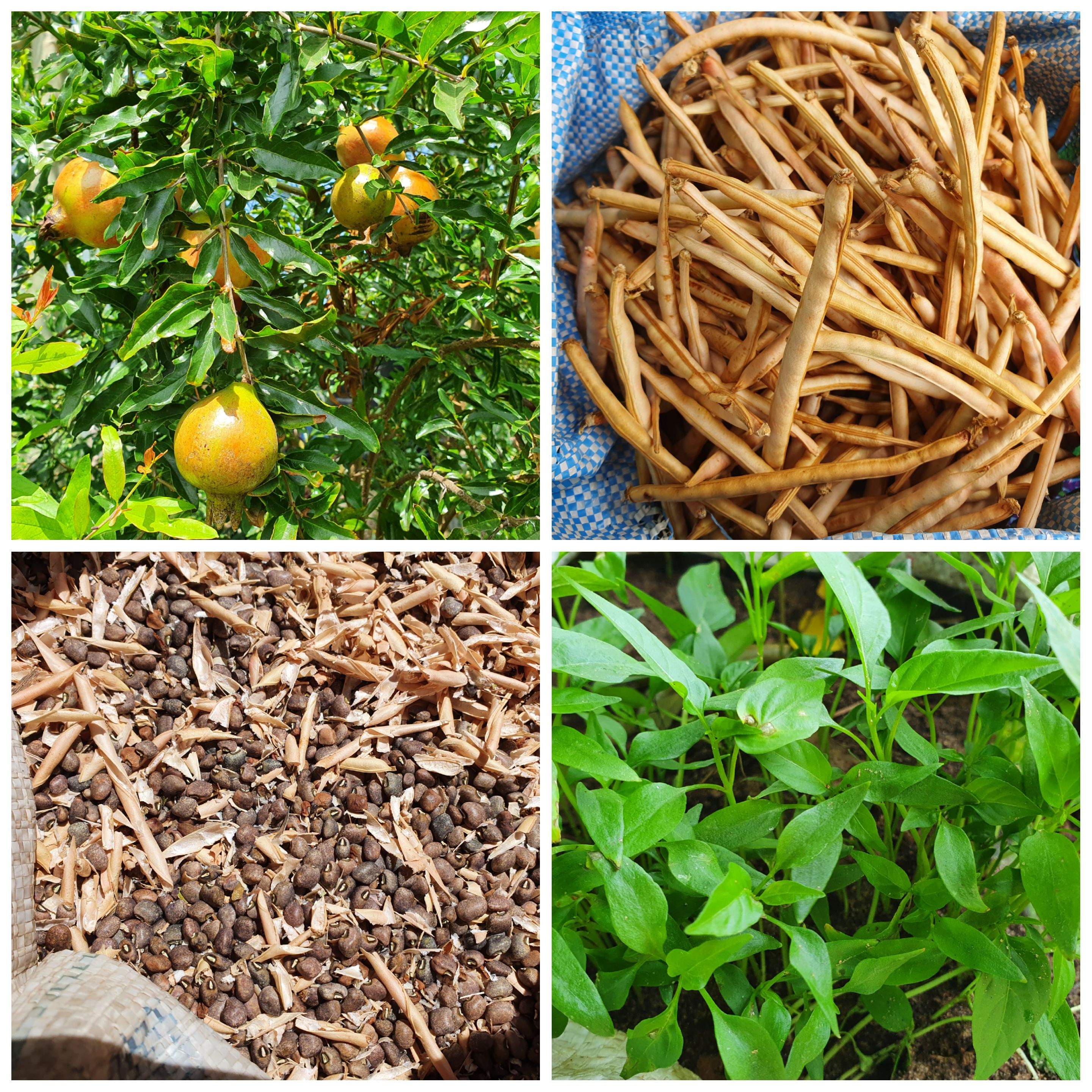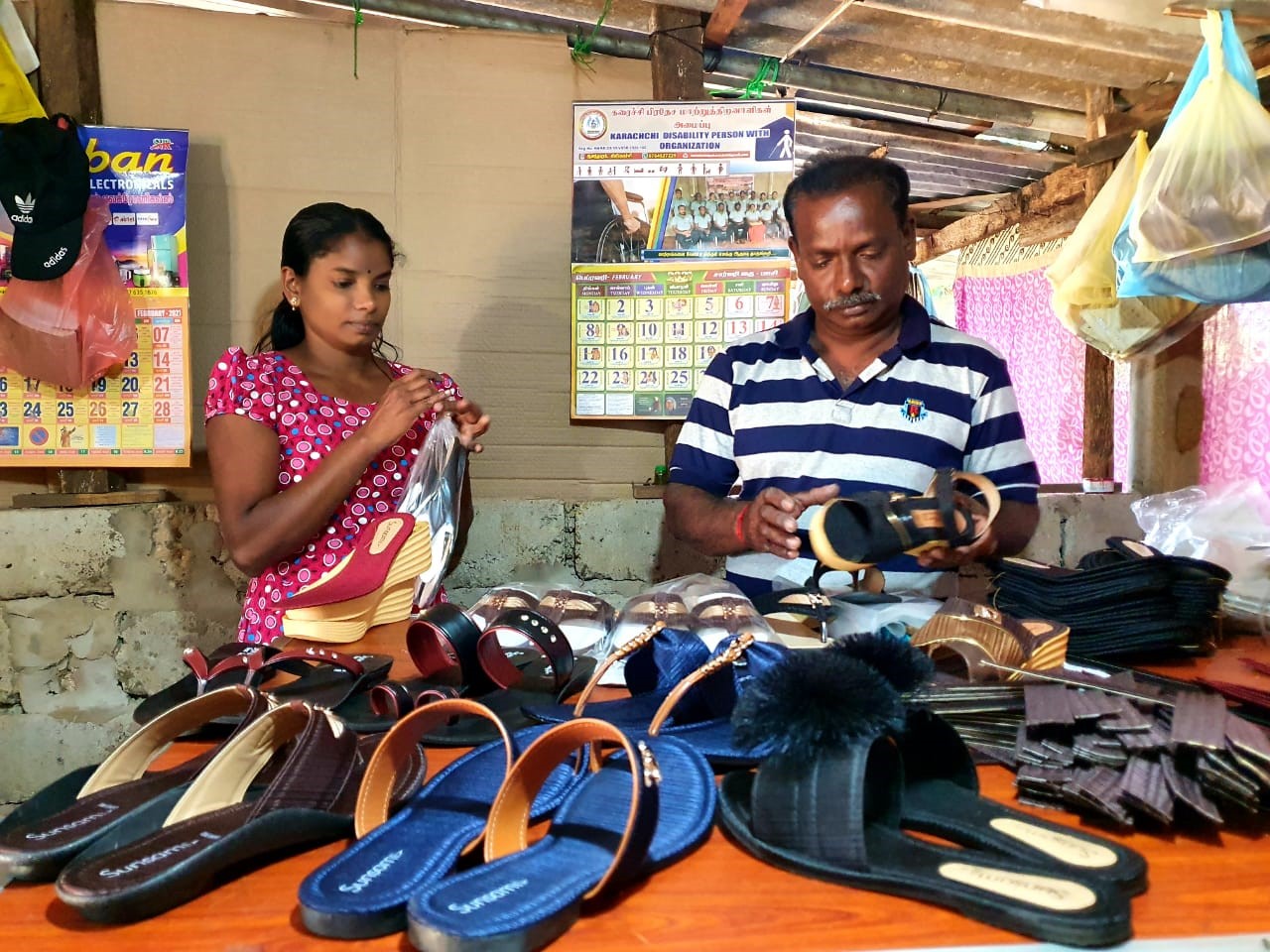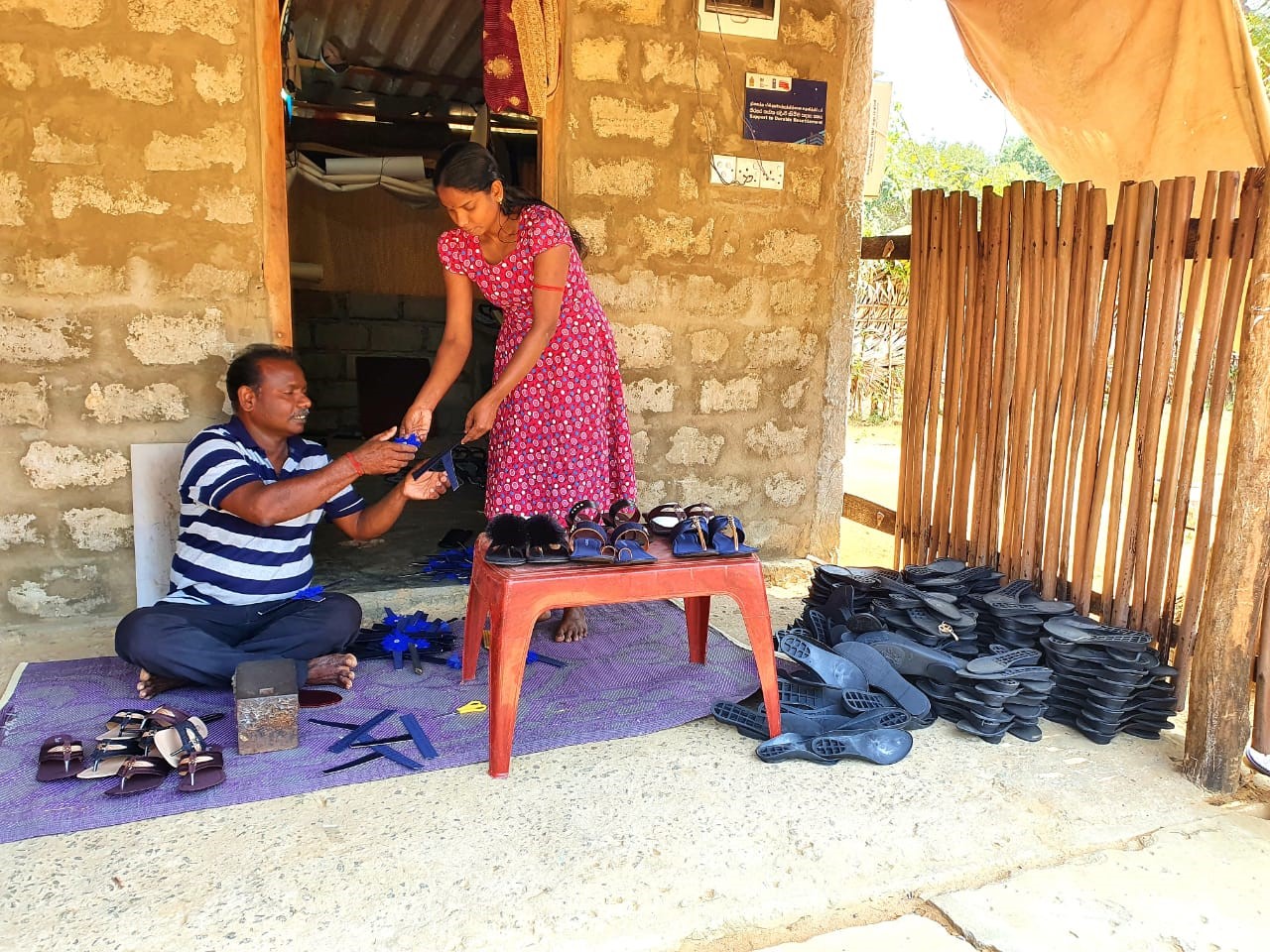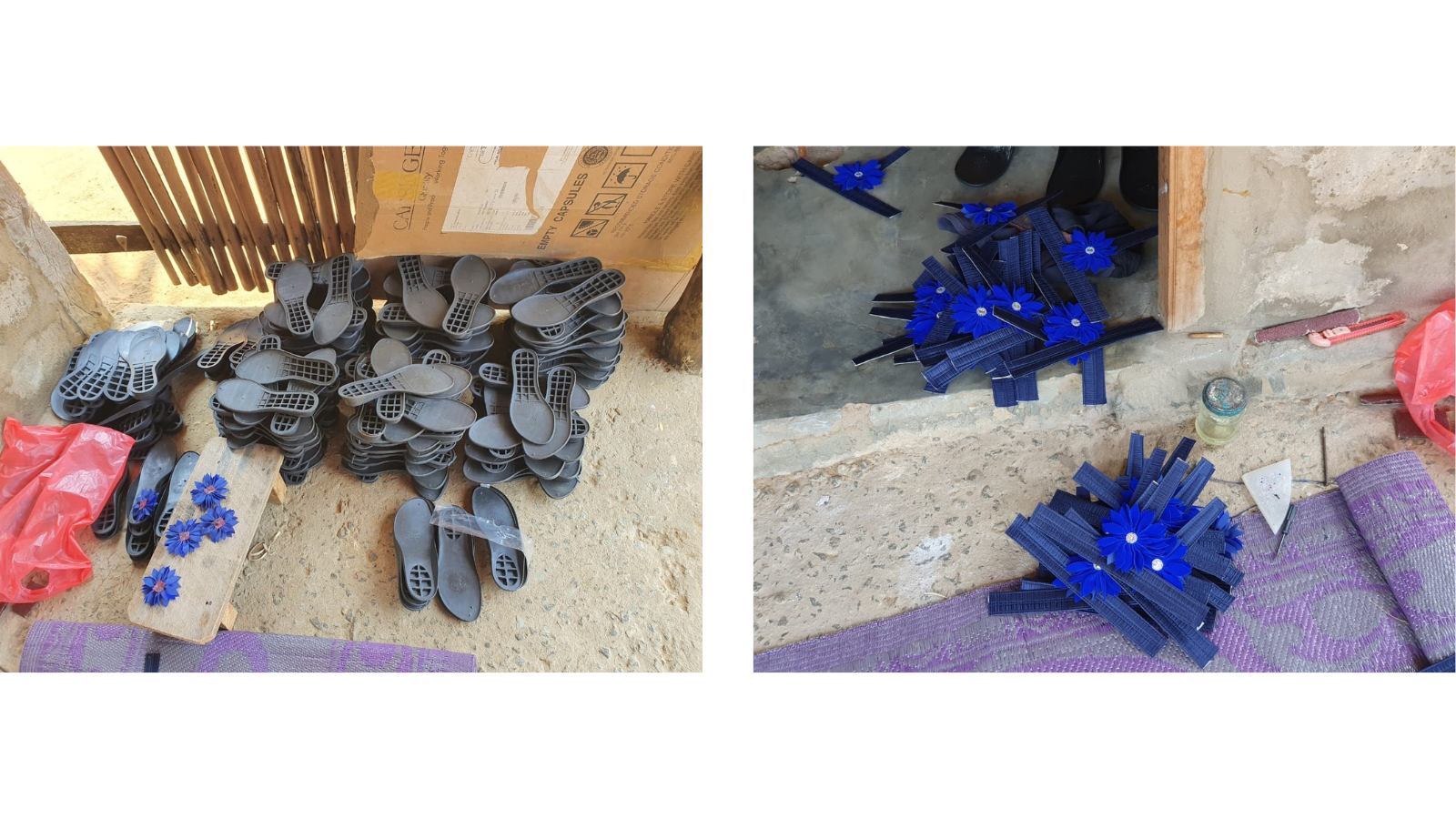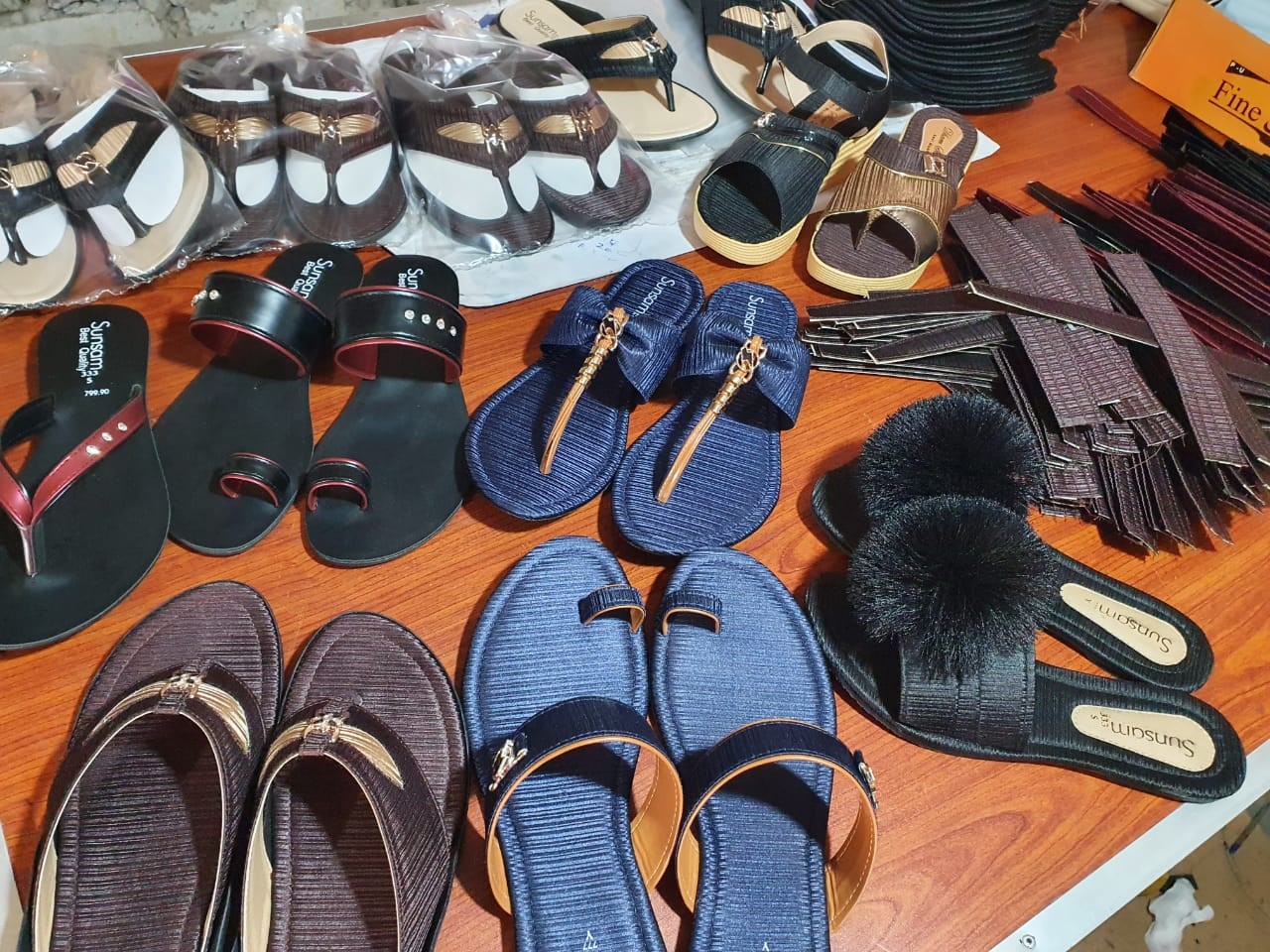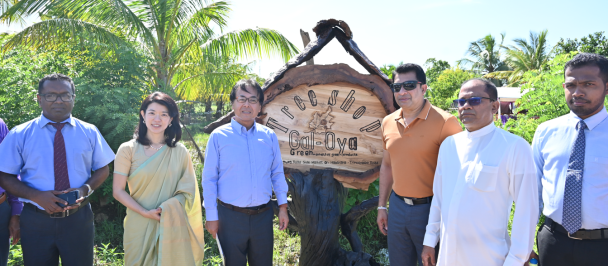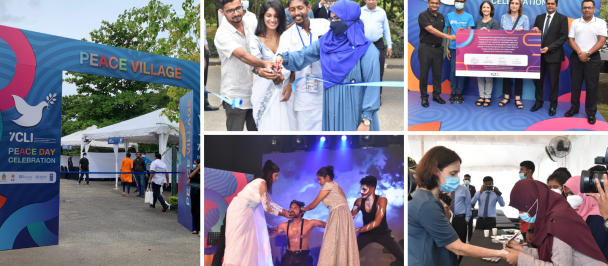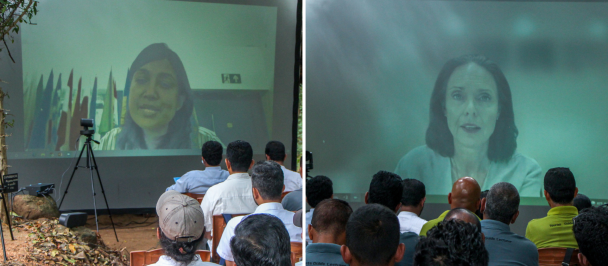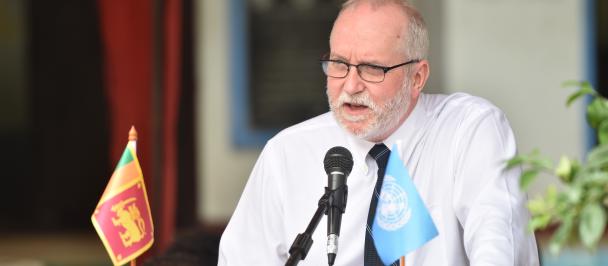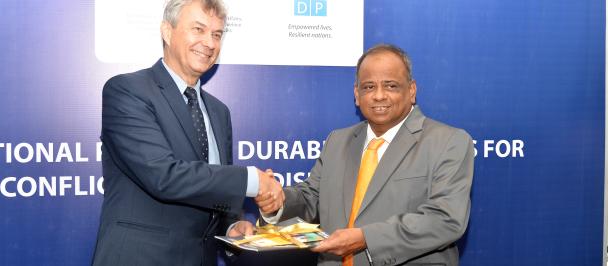Promoting durable solutions among IDP’s and Refugee Returnees
A village with many stories
September 23, 2021
A village with many stories
Thiresa Rasikka
In 1990, at the height of the conflict in the North of Sri Lanka, a then 7-year-old Thiresa Rasikka found herself in an orphanage in the village of Muhamalai in the Kilinochchi District. She was given over to the care of the orphanage by her relatives following the loss of her family.
At 16 years of age, Rasikka left the orphanage and decided to travel to Colombo in search of her relatives. Although she was unable to locate them, she remained in Colombo at a boarding house and found work at a garment factory. Life went for Rasikka. She later married and gave birth to a daughter and twin boys.
Rasikka’s daughter, Madhuvanthi was born with a disability. Her condition put a strain on the family’s financial resources. With every passing year, their economic situation worsened, which led Rasikka to experience domestic violence and abuse at the hands of her husband. With economic insecurity, and fear for her safety and that of her children, Rasikka left Colombo in 2018.
She learned that de-mining operations had commenced in the village of Muhamalai, the land on which the orphanage she grew up was located. After the land was cleared in 2019, Rasikka and her three children returned to Muhamalai where she was able to acquire a 1.25-acre plot of land.
Support to Durable Resettlement
In 2019, the Support to Durable Resettlement (SDR) project, a three-year project, funded by the Government of the United Kingdom (UK) and implemented by the United Nations Development Programme (UNDP) in Sri Lanka, contributed to providing newly resettling communities with durable resettlement opportunities including access to essential basic services, sustainable livelihoods and income generation opportunities in the Jaffna, Kilinochchi, Mullaitivu, and Trincomalee Districts. Under the project, a broad-based needs assessment was also conducted to understand economic growth and sustainable development options for Internally Displaced Persons (IDPs) and refugee returnee communities in the Northern Province.
During this assessment process, Rasikka requested support to engage in agricultural activities on her land to generate income to support her family. Through the intervention of the project, she received a water pump, supply pipes and necessary irrigation tools worth Rs. 125,000 to meet her crop irrigation as well as domestic needs. Her main source of income was from the cultivation of Cowpea (Vigna unguiculata). With the additional equipment she now has, Rasikka has been able to expand her farm to include vegetable cultivation, fruit orchards, coconut cultivation, the preparation of seedling nurseries and the grafting of Pomegranate trees for sales. Rasikka’s average income from vegetable farming itself begins at Rs.500 per day in addition to the food gardens contributing to her household food security. Rasikka recalls her first sale to a retailer in Pallai town.
“The moment I received the money from the retailer was the happiest moment of my life since becoming a mother. My independence brought me immense confidence” she says.
Empowering women for sustainable livelihoods
The SDR project not only aims to promote sustainability and livelihoods in agriculture among IDP’s and refugee returnees but also works to empower women farmers to improve their productivity and pursue sustainable livelihoods by building their knowledge, business skills and capacities for enhanced agricultural productivity and product diversification. An objective of the project is to create enabling environments that empower women to become primary producers in largely male-dominated industries such as agriculture and participate in decision-making processes that will lead to the development of resettled communities and overall economic productivity.
Rasikka’s enthusiasm for farming and agriculture was evident, and her efforts paid off when she was selected to receive further support under the project’s ‘Scale Up Support’ component, through which she requested for a sprinkler irrigation system worth Rs.75,000 to be set up in her field.
Now at the age of 43, Rasikka has come a long way since her childhood in the orphanage. She didn’t shy away from the challenges she had to face through the years and has now become an independent woman in all aspects of her life. With this renewed strength, she was also able to reconnect with her estranged husband, who reunited with her and her children in Muhamalai, and now supports Rasikka in her agriculture activities.
“The best reward I received from UNDP was a chance at earning an independent living, giving me a chance to create employment for myself and other women, helping them to become self-reliant and free,” she says with a smile.
Thambirada Yogenthiran
25 years ago, in 1996 Mr. Thambirada Yogenthiran with his wife and daughter were displaced from the village of Muhamalai in the Kilinochchi District due to the conflict. Following de-mining activities in 2019, the family returned to the village, constructed a temporary shelter and looked to resume their lives.
One step at a time
During his time in displacement, Yogenthiran taught himself shoemaking techniques and worked as a labourer. Upon his return to his hometown, he began to utilize his shoemaking skills to make slippers and shoes - a skill that many don’t possess in the village, and with the help of his family managed to translate it into productive output.
Through the Support for Durable Resettlement in Sri Lanka (SDR) programme supported by UNDP in Sri Lanka and funded by the Government of UK, Yogenthiran received livelihood assistance for his family business, which included a sewing machine, tools and a table. Equipped with this support, the family can produce 25 pairs of shoes per day now and sell them in their local town shop Yarl Bata, with a pair of slippers selling for around Rs. 550. With the shop being one of the few in the local town, the sales from the shoes have allowed the family to find means of supporting themselves and becoming financially independent.
Mr. Yogenthiran said that "returning to this village after 23 years, I was afraid of not having any opportunity to earn an income. But now I am confident that I can succeed in shoemaking and I am even paying for labourers to help me. I will expand my production in the future and will get more marketing opportunities".
With bright plans for the future, community members like Rasikka and Yogenthiran are now able to enjoy the freedom they had once lost.
UNDP Sri Lanka works to protect and assist the IDP’s and refugee returnees who are among the most vulnerable and marginalized communities in Sri Lanka, by creating a safe and stable environment that enables them to enjoy full and equal participation in society with a chance to rebuild their lives with hope, dignity and peace.
***

 Locations
Locations